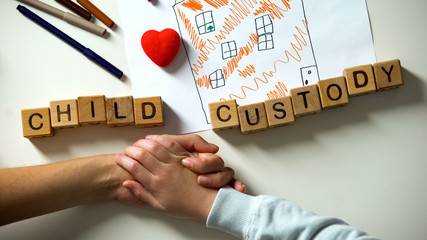Can my child decide who they get to live with?
At what age can a child decide who to live with? This is extremely daunting and emotional to decide which parent the child gets to live with. Parents can decide amicably which parent will move out (non-resident parent) and the other parent becomes the primary caregiver (resident parent).
Many parents struggling to decide on the child care agreement often ask whether or not the children have a say in making arrangements for residence or contact.
Can my child decide who they get to live with?
In England and Wales, the child can not legally decide who they want to live with or spend time with until they reach the age of 16. This age limit will be extended to 17 or 18 in the case of the Child Arrangement order that sets out where the child should live.
Until the child turns 16 years old, parents will either decide on living arrangements voluntarily or through the court. The judge will take into account the best interests, wishes, and feelings of the child (about 12 or 13 years) when deciding on the outcome of the application.
The child has to be at least 12 to 14 years for their views to be considered. Ultimately, the court will decide as to what is in the best interest of the child as per the welfare checklist.
- The ascertainable wishes and feelings of the concerned child
- The physical, emotional, and educational needs of the child
- The potential effect of the change of circumstances on the child
- The child’s age, sex, background, and other attributes that the court may consider relevant
- The capabilities of the parent in meeting the child’s needs
- The power available to the court in proceedings in question
- The child has suffered harm or is at the risk of harm
What if parents do not agree on a child’s living arrangements?
Some families reach a living arrangement amicably while it is more complicated to sort out the arrangements for others. If the parent can not agree on who the child should live with, the first step would be considered mediation or negotiation.
If mediation and negotiation fail, the court will decide a Child Arrangements order that sets out who the child will live with and a schedule of contact.
Who has more rights?
It is wrongly assumed that the mothers have more rights than the father or that the court will tend to favour mothers in children proceedings. This is not the case as the mother and father have equal parental rights.
If the father’s name is on the birth certificate, they automatically get parental responsibility and have a say in major decisions of the child’s life.

